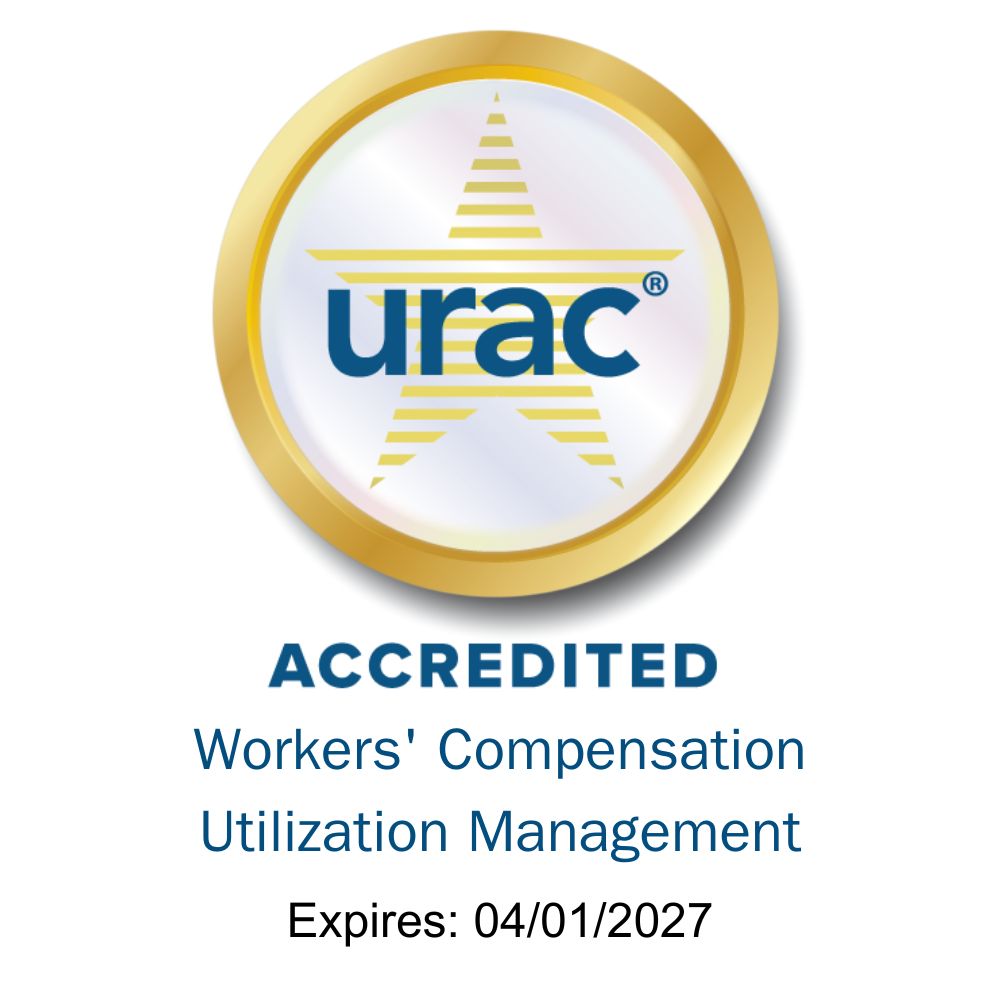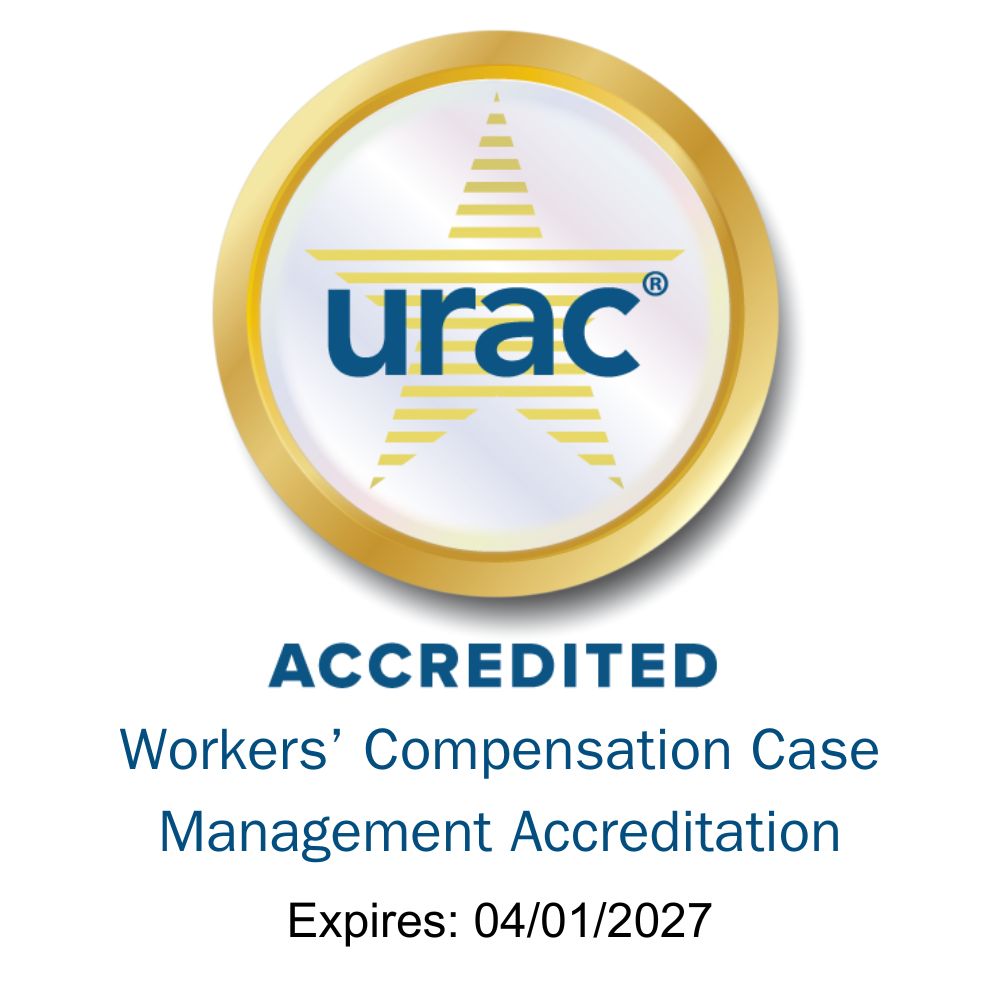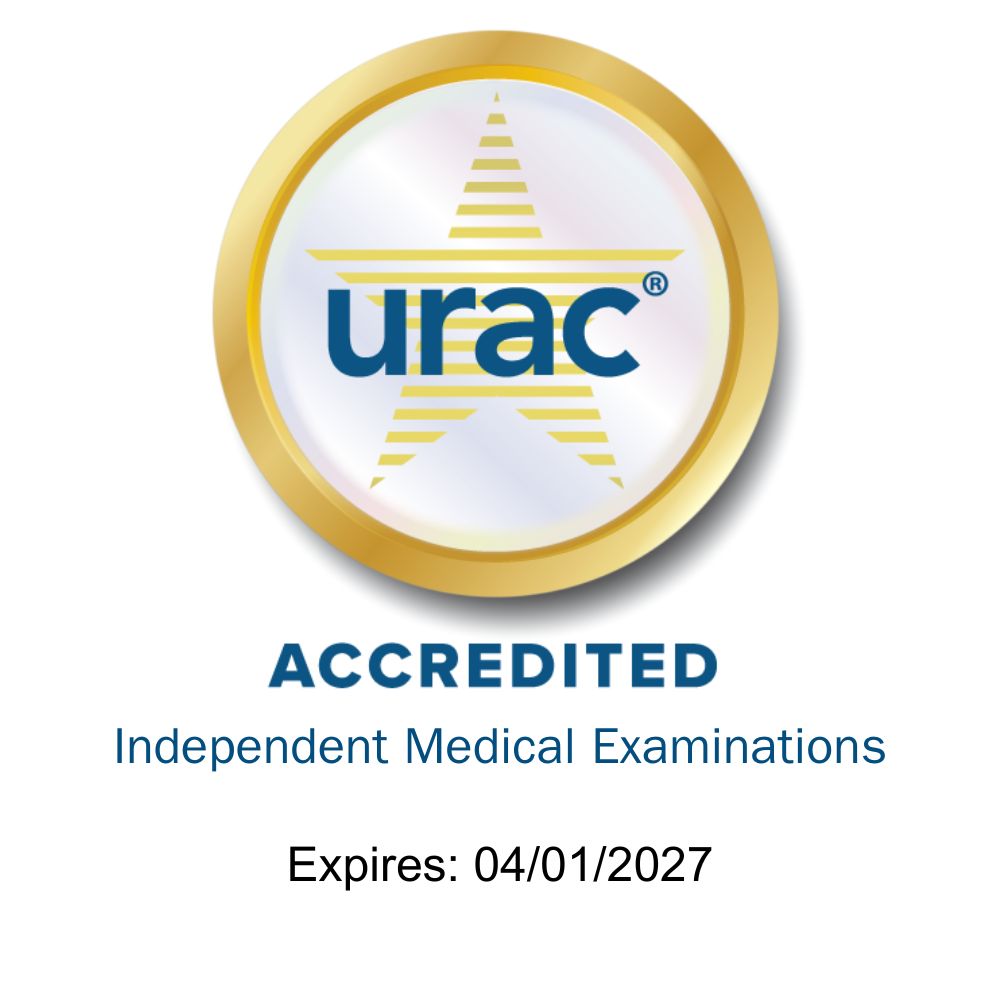The Other Drug Issue - When Addiction is a Pre-Work Injury Problem
Addiction in workers’ comp has been a hot-button topic over the past decade, mostly due to the staggering number of injured workers who have become addicted and, in the more tragic cases, have succumbed to prescription opioids. Yet, the same level of attention hasn’t been given to another addiction issue, treating those injured employees whose struggles with drugs and alcohol predate their injury.
{{ script_embed('wistia', 'gxohxokgqy', ', ', 'inline,height=394px,width=700px') }}
Tom Kerr (TK): In today’s Inside Workers’ Comp, we take a closer look at this issue with Genex branch manager and mental health professional Marianna Kritsberg, MSW, LCSW, RN. Marianna, thanks for joining us today
Marianna Kritsberg (MK): Thank you. I'm glad to be here.
TK: Let’s get an idea of the scope of this problem. Is pre-injury drug addiction and alcoholism something that comp professionals like case managers often encounter?
MK: Yes, unfortunately. Whatever issues the worker had before the injury, would only get worse after the injury. The National Council of Alcoholism and Drug Dependence estimates that about 14.8 million Americans are using drugs, illegal drugs, and 70 percent of those are employed. This is not accounting for those who sustain workers’ comp injuries, this is just the general workforce. But what these statistics show is we have a huge number of substance abuse related issues in the workforce.
The same institute points out that employees who have alcohol problems are almost three times more likely to have injury‑related absences than workers who don't have alcohol issues. So, we do have and we do see a large population who have substance abuse issues before they got injured, and those issues continue and often get worse after injury.
TK: And if an injured worker doesn't reveal his addiction, or doesn't admit to having one, what are some ways case managers can determine that a person may have a problem?
MK: They say that people who have had addiction problems for a while are the best liars, and I have seen this many times when I worked in inpatient and outpatient rehab. They have an illness, and they're trying to live with this illness, so they have become very creative in how to, not overcome the illness, but how to live with it, and how to make other people believe that they don't have an issue.
So, they do come up with a lot of stories. There are certain signs that our case managers look for when they work with the injured workers in case they do have a substance abuse issue, and those signs are similar to what any employer should look for as well.
So, we're looking at chronic lateness to work, not showing up to work at all, missing work excessively, or maybe leaving work early. For those injured workers who are working either full duty or modified duty, we’re also looking at someone who's appearing to be busy, but not really accomplishing anything.
Of course, other factors our nurses look for is if the person smells of alcohol, has bloodshot eyes, red nose and cheeks or sudden, unexplained weight loss. A few of these symptoms could be medically related, organically caused, or could be related to substance abuse, especially drug use.
A few other symptoms to look out for are complaints of upset stomach without any other visible signs of illness. Also something that our nurses look for is polypharmacy, those injured workers who use multiple pharmacies. That's a red flag for sure, because they might be trying to fill some scripts from their personal doctors and their workers’ comp doctors for narcotics, so doctor‑pharmacy shopping is an issue as well. This also includes people who go to different ERs, people who go to different clinics, who often change primary treating physicians, those are all signs of a person who is looking to obtain more narcotics, more pain killers.
There are also physical signs that a nurse can see during the appointment such as trembling hands, irritability, mood swings, headache, insomnia, temporary blackouts or memory loss — those are all signs of substance abuse, and those are all the signs that nurses can observe and look for as they work with the injured worker.
TK: So, and here's the tough part, how do you approach an injured employee about addiction if you suspect he or she has a problem?
MK: Well, that is tough. Like I said, they have an illness and are usually trying really hard to mask it so they can continue functioning and working. And, there is a stigma also attached in our society to substance abuse, so it is tough.
I think as nurses, we are in a position that gives us a little bit of leverage. A nurse is a non‑threatening role, most of the time, and it's also medical. So, a case manager with training can approach the injured worker and talk to him or her in a non‑punitive way, explore what the issues are, and offer help.
And definitely never assume, never threaten, and never talk to the injured worker in a punitive way, because that's what scares people off. Injured workers with substance abuse issues, especially, will often get anxious and they'll close off. So, explore, offer help, offer a listening ear, and offer solutions after you find out that there is an issue.
TK: Could the employee be in jeopardy of losing his job if he reveals his addiction?
MK: You know, there is, like I said, a stigma attached in our society, but it's more of a common knowledge stigma, a stigma that we’re aware of and think about.
Johns Hopkins Institute did a survey of various employers and found that 70 percent said that they would assist employees in returning to work and assist them in getting treatment if they found out that a worker had a substance abuse issue.
So, of course, we can't control what employers would do, but I think this study shows that most employers countrywide are able and willing to help their employees with substance abuse issues.
TK: And, I know HIPAA privacy laws don’t apply to workers’ comp, but is there still a confidentiality situation? Let's say you suspect the injured worker has a drug problem or he or she reveals that to you, is it something that you would need to report to the employer or the insurer?
MK: So, if an injured worker is revealing that he has a substance abuse issue, or the nurse is suspecting a substance abuse issue, like you said, there is no HIPAA as it relates to workers’ comp. However, case managers are limited in what we are able to reveal to employers — the employers are only subject to receiving a work status.
A case manager would share this information with the adjuster, however, and it is up to the adjuster to work with the employer to resolve this, but the case manager would not really be disclosing this to the employer.
TK: In terms of communicating these issues with other members of the work comp team, do you reach out to them first and say, "I suspect this," or do you go to the patient first and try to work that out before communicating with the rest of the team?
MK: So, that's a good question. I think it would really depend on certain factors. As an experienced nurse case manager, you would assess the situation and determine how you think the injured worker would react if you challenged him, or if you talked to him about it.
It could go both ways. You could talk to the injured worker and try to address your suspicions and try to address the issues and see how he or she reacts, but you would also speak with the adjuster, and you would definitely also speak with the medical team.
There is a protocol that an injured worker and any patient with an addiction, does not get prescribed narcotics, unless narcotics are already prescribed, and then you would work on reducing the number of narcotics that person takes. There is also a protocol in general health care that if a person has addiction, and they know about it, they need to let their physician know. Let's say you go to a dentist and you have an addiction and maybe you've had some rehab for it, too, and you are in remission. You need to tell your dentist not to prescribe any narcotics. This would follow you throughout life. Basically, any doctor you would go to or any medical professional, you need to know not to prescribe you narcotics. Also, we, as nurses, would tell the doctors that this person has a substance abuse issue and not to prescribe narcotics.
So, yes, you definitely work with your medical team. You work with your adjuster and you try to discuss this with the injured worker. Depending on their stage in their life, they might or might not be receptive, but you keep working at it.
TK: This leads to my next question, if you know that pharmaceuticals can't be a part of the pain management protocol for these patients, what other options do you offer the injured employee?
MK: Well, you know, I do have to say this, and I might not be very popular for saying this, but there is a world of difference between managed pain and zero pain. The bottom line is that injuries hurt. The worker got injured and he or she will be in pain. And surgeries hurt as well.
Managing pain to a tolerable level is a reasonable goal. But eliminating pain altogether probably is not a reasonable goal. Pain is a normal part of the healing process and it improves over time, and there are ways to manage pain without narcotics or maybe lower dose of narcotics but pain‑free is the mindset that took hold in the United States and that's what made our opiate problem in the first place.
We have this mindset that everybody needs to be pain‑free and turning that mindset around is a challenge. There is a protocol and the guidelines show us that muscular‑skeletal injuries, for example, don't need narcotics unless we try over-the-counter meds such as ibuprofen or Aleve and so forth. We try compresses. We try hot and cold. We try physical exercise. There are many things that we try and we should be trying this for four weeks before even considering prescribing any narcotics.
TK: How can case managers direct an injured employee with an addiction to get the help that he needs?
MK: There is one big support organization that most injured workers can access and that's the EAP — Employee Assistance Program. They allow employers to help employees struggling with substance abuse issues or mental health issues and boost employee morale without losing the productivity because the employee stays employed throughout the process.
EAPs provide many options and services for substance abuse and mental health, including onsite, in‑person, and telephone‑based. I've looked at the studies and they show that employers who have good EAPs usually receive, like, 12 times their investment into the EAP. A big employer, Gillette, saw a 75‑percent decrease in their inpatient substance abuse treatment costs after pushing an EAP.
So, my first step as a case manager would be to refer the employee to get help from an EAP. Remember, we cannot tell the employer unless the injured worker gives us permission about the substance abuse problem, but EAP service is anonymous. So, if the injured worker has a good EAP they should definitely access it. There are also many community programs and services that can help with substance abuse problems separate from workers’ comp.
So, if a substance abuse problem is part of a workers’ comp claim, then you definitely work with the doctor on reducing the narcotics. You work with the adjuster and the substance abuse then becomes part of the claim and there are many good rehab places in the community.
Now, the rule of thumb is that you try outpatient rehab first and if you have failed outpatient rehab, only then the inpatient rehab is warranted. Inpatient rehab works really well if it's long‑term. However, I know a lot of people say, "Well, let's just put them in inpatient rehab and the person will come out all better."
Well, most inpatient rehabs are about 28-day stays and once you get out of the rehab, you still have all the same triggers, you have the same doctors, you have the same circumstances, you may have the people you used and abused drugs with, community, neighborhood, and so forth. So, unless you are prepared to and know how to manage all those triggers, you are right in the same place where you were before the inpatient rehab. So, there has to be support and there has to be outpatient follow‑up after inpatient rehab, but you should try outpatient first.
TK: Family members can play a big role in trying to help the injured employee get back to work. For those battling addiction, do you always try to get the family involved in these cases or could they sometimes be a detriment?
MK: It really depends. Are they a detriment? Are they helping? A lot of times people who have had a substance abuse issue prior to getting injured and have had it for a while, they have burned all the bridges. They don't have family. They don't have friends.
There are also those injured workers who have good, supportive families, but don't want their family members to know about the addiction — and you would be surprised how families can be totally blind to their loved one’s addiction. They may even know all the signs to watch for but they still don't know that this person has an addiction or they're in denial about it.
And then we have families who are very supportive, who are aware and are trying to help. In these cases, it is good to involve families. Now, again, remember, there is no HIPAA with workers’ comp but there is confidentiality, so, if the injured worker doesn't want the family to know, we can only talk and explain to the him how important support is. But if the family's on board and the injured worker is on board, then we definitely encourage that supportive relationship.
And that's why I was saying before that inpatient or even outpatient rehab by itself is not the magic answer. You have to have the support. You have to have people who are willing to help you overcome the addiction.
TK: One final question. Nurses, as you know, are always ranked among the most trusted professionals by the general public. So, do you find that as a case manager, an injured worker sees you more as an ally and is more willing to seek help from you?
MK: Definitely, even though a lot of times when a case manager gets assigned, an injured worker can be suspicious at first. But, in most cases, injured workers and families soon realize what our role is and love the fact that they have, what they call, a “personal nurse” assigned to them.
So, most of the time, the relationship is non‑adversarial. They do see a nurse as an advocate for them. They see a nurse case manager as the professional who coordinates the care. So, yes, I think case managers can and do make a difference in getting the injured worker to open up about his addiction. They see a nurse as someone they can share information with to improve their overall health.
TK: Thanks, Marianna. We’ll be back in a few weeks with another important topic to discuss. Until then, thanks for listening.







